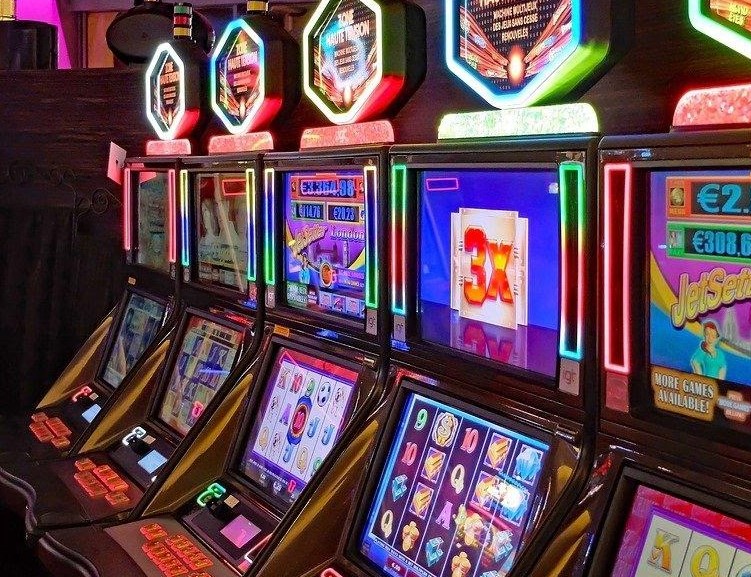Slot machines have been a staple in casinos around the world for decades, captivating players with their flashing lights, spinning reels, and enticing sounds. But have you ever wondered how these machines work? In this article, we’ll delve into the science behind slot machines, exploring the intricate mechanisms that make them tick.
Introduction
Slot machines, also known as fruit machines or one-armed bandits, are gaming devices that allow players to wager money on a game of chance. They are immensely popular in casinos, where players can try their luck and potentially win big jackpots. Slot machines have also made their way into the digital realm, with online casinos offering a wide variety of virtual slot games.
History of Slot Machines
The first slot machine was invented in the late 19th century by Charles Fey, a mechanical engineer from San Francisco. Known as the “Liberty Bell,” this early slot machine featured three spinning reels and five symbols – horseshoes, diamonds, spades, hearts, and a Liberty Bell. Players would insert a coin and pull a lever to spin the reels, hoping to land a winning combination.
The Basics of Slot Machines
Slot machines consist of several key components, including reels, symbols, and paylines. The reels are the rotating drums on which the symbols are displayed. When a player spins the reels, the machine randomly selects a combination of symbols. If the combination matches a winning pattern, the player wins a payout.
Random Number Generators (RNGs)
Central to the operation of modern slot machines is the use of Random Number Generators (RNGs). An RNG is a computer program that generates random numbers, which are used to determine the outcome of each spin. RNGs ensure that each spin is independent and unpredictable, making it impossible to predict the outcome of a spin.
The Role of Probability in Slot Machines
While slot machines are largely games of chance, probability plays a significant role in determining the likelihood of winning. The concept of Return-to-Player (RTP) percentage is used to describe the long-term expected payback of a slot machine to its players. For example, a slot machine with an RTP of 95% will, on average, pay back $95 for every $100 wagered over time.
Understanding Slot Machine Symbols
Slot machines feature a variety of symbols, each with its own value and meaning. Common symbols include fruits, numbers, and letters, while special symbols like wilds and scatters can trigger bonus features and enhance the gameplay experience.
Bonus Features and Rounds
Many slot machines include bonus features and rounds, which are designed to add excitement and increase the chances of winning. Bonus features can include free spins, multipliers, and interactive mini-games, all of which can result in higher payouts for players.
The Psychology of Slot Machines
Slot machines are designed to be highly addictive, employing various psychological tricks to keep players engaged. Features like near misses (where a spin is just one symbol away from a win) and celebratory sounds and lights create a sense of excitement and anticipation, encouraging players to keep playing.
Regulation and Fairness
To ensure that slot machines are fair and operate within legal guidelines, they are subject to strict regulation by gaming authorities. These authorities oversee the testing and certification of slot machines to ensure that they meet standards of fairness and randomness.
Slot Machines vs. Skill-Based Games
While slot machines are largely games of chance, there is an ongoing debate over whether they involve any skill. Some argue that skilled players can improve their chances of winning by employing certain strategies, while others contend that slot machines are purely games of chance with no skill involved.
Future Trends in Slot Machine Technology
As technology continues to advance, so too does the world of slot machines. Emerging technologies like virtual reality (VR) and augmented reality (AR) are being integrated into slot machines, offering players a more immersive and interactive gaming experience.
Conclusion
In conclusion, slot machines are fascinating devices that blend science, technology, and psychology to create an entertaining gaming experience. Understanding the science behind slot machines can help players make more informed decisions when playing, ensuring a fun and enjoyable time at the casino.
FAQs
- Are slot machines rigged?
- No, slot machines are regulated by gaming authorities to ensure fairness and randomness in outcomes.
- Can you improve your chances of winning at slots?
- While slot machines are games of chance, some strategies, such as playing machines with higher RTP percentages, can improve your odds slightly.
- Do online slot machines use RNGs?
- Yes, online slot machines use Random Number Generators (RNGs) to determine the outcome of each spin, just like their physical counterparts.
- What is the best time to play slot machines?
- There is no best time to play slot machines, as each spin is independent and random.
- Do slot machines pay more at night?
- No, slot machines operate on RNGs and pay out based on the game’s RTP percentage, regardless of the time of day.

